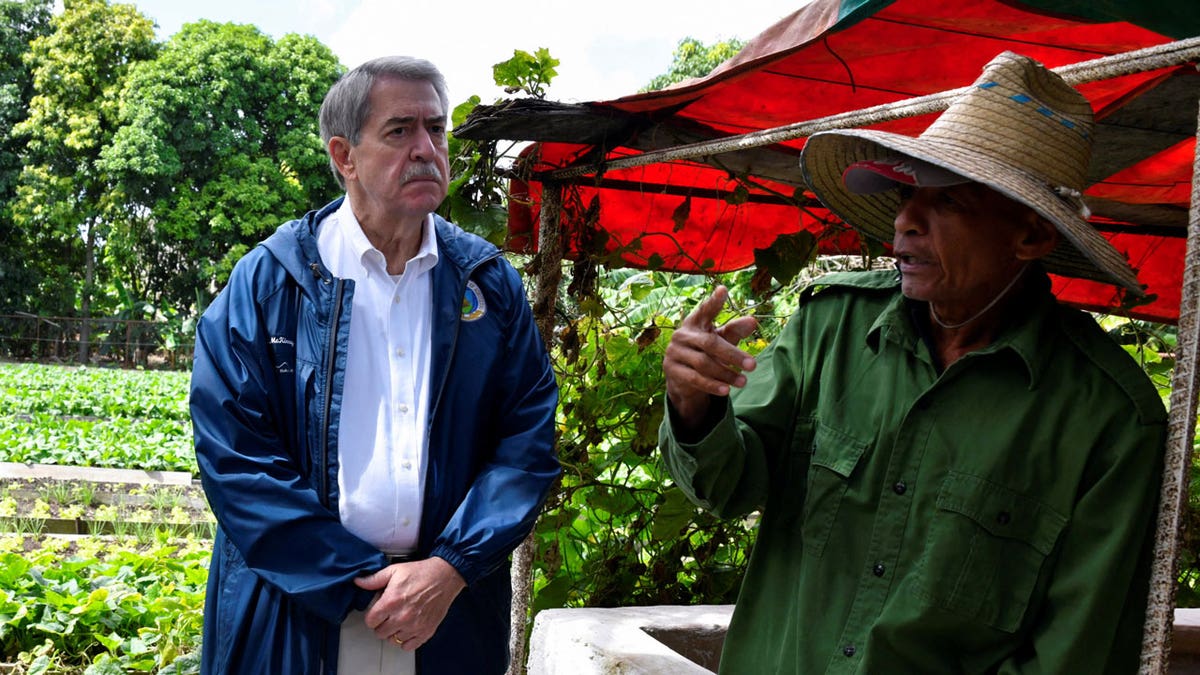Former AG Dept official: Biden regulations crushing farming industry, ‘backbone’ of America
Ray Starling, former chief of staff to the U.S. Secretary of Agriculture, outlined the various ways the Biden administration is holding back agriculture production and innovation.
The leader of an association of top U.S. state agriculture officials on Wednesday said his country might want to take advantage of reforms underway in Cuba, possibly through investments.
"There seems to be a new Cuba that is emerging and it may represent a pathway toward greater collaboration," Ted McKinney, chief executive of the Association of State Departments of Agriculture told Reuters at a farm cooperative on the outskirts of Havana.
Cuba is mired in its worst economic crisis in decades, resulting in shortages and soaring prices for food, medicine, fuel and other basics.
The Communist-run country is slowly implementing market reforms in response.
The cooperative was the last stop of a five-day visit by top farm officials from seven states, who met with President Miguel Diaz-Canel and others and visited various sites.
The United States has maintained comprehensive sanctions on Cuba since Fidel Castro’s 1959 Revolution.

Ted McKinney, CEO of the National Association of State Departments of Agriculture (NASDA), listens to a Cuban farmer during a visit by NASDA members to a farm cooperative on the outskirts of Havana, Cuba, on Feb. 21, 2024. (REUTERS/Norlys Perez)
However, Congress in 2000 authorized agricultural sales to Cuba for cash which to date have amounted to more than $7 billion.
Commissioners from Louisiana, Indiana, South Carolina, Michigan and Montana all told Reuters at the cooperative they sensed Cuba was changing. They cited the emergence of more than 10,000 non-farm small and medium-sized businesses over the last two years, some linked to farm supply and food processing.
"The trend is a positive one," Hugh Weathers of South Carolina’s Department of Agriculture, said.
Indiana's Don Lamb said he viewed Cuba's emerging private sector as "interesting and exciting."
CLICK HERE TO GET THE FOX NEWS APP
Cuba has also opened its agricultural sector, which for decades has included some 200,000 private farms and thousands of cooperatives, to foreign investment.
No U.S. investment has been authorized to date, but some has begun to come in from other countries.
McKinney said it was not the states’ role to pass bills but that the commissioners would report back to legislators and federal agencies about the market's potential.





















